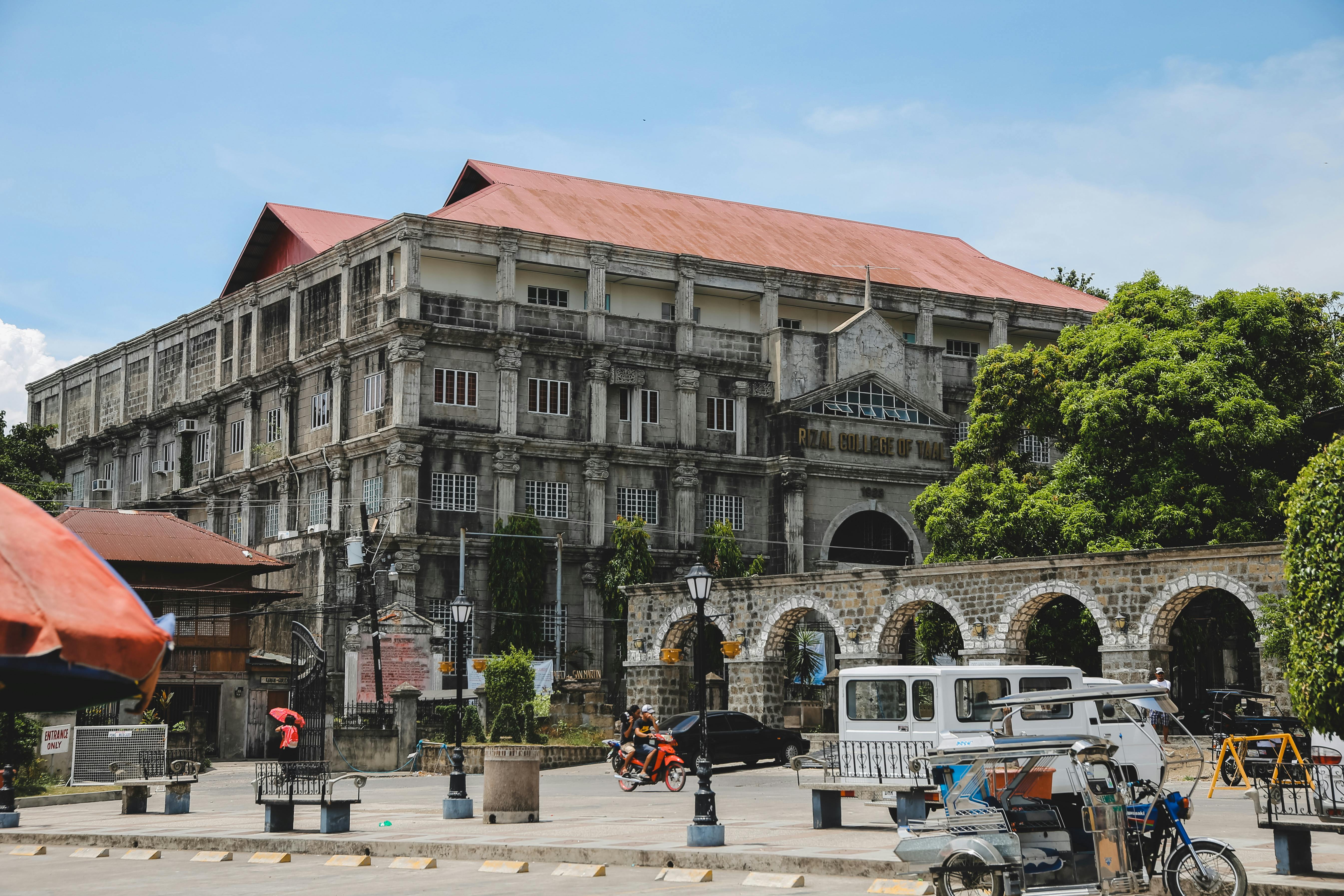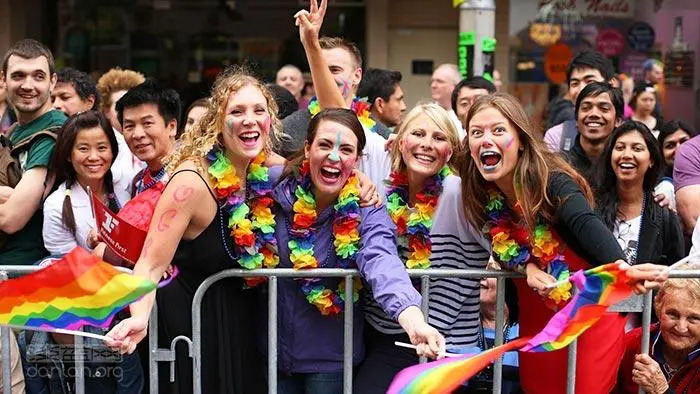Australia has a lot of traditional festivals, some of which are the same as in China. But some are different!
New Year’s Day (1 January)
Every state and territory in Australia celebrates New Year’s Day on 1 January. For many people, New Year’s Day is the perfect time to wind down from the New Year’s Eve party the night before.
Every major city in Australia holds New Year’s Eve celebrations, often accompanied by fireworks and other events such as those held on Sydney Harbour. The Perth Cup, Western Australia’s premier thoroughbred racing event, is held at Ascot Racecourse on New Year’s Day. Crowds travel worldwide to join the party at Sullivans Cove and celebrate the New Year with the Sydney to Hobart Yacht Race competitors on Hobart’s waterfront.

And here’s the thing about Melbourne New Year’s Eve events: every year, there’s Early Eve’s New Year’s Eve Countdown Warm Up Party, which fuels the following New Year’s Eve. It’s usually held in two locations, Yarra Park and Footscray Park.
Australia Day (26 January)
Scheduled for 26 January each year, Australia Day is Australia’s national day, commemorating the arrival of the first Europeans in Australia. By law, Australia observes a national holiday on that day. Australia Day usually starts with a formal morning ceremony: the flag is hoisted, the national anthem is sung, a salute is fired, medals are awarded to special group projects or individuals, and a ceremony is held to welcome the country’s newest citizens. This ceremony is the only official event in Australia on this day.

The Friday before Easter, Good Friday
Holy Friday, Silent Friday, Good Friday, Good Friday, Good Friday, known to Catholics as Good Friday, is a Christian religious holiday that Christians use to commemorate the anniversary of the crucifixion and crucifixion of the Lord Jesus Christ on Calvary. Good Friday is a Christian holiday commemorating the crucifixion of Jesus and his death on Calvary. It is the Friday in Holy Week and part of the Three Days of Passover celebration, the Friday before Easter.
Easter Monday
Easter Monday (Lord’s Resurrection Day) is a major Western holiday that falls on the first Sunday after the full moon on the spring equinox each year. Christians believe Easter symbolises rebirth and hope and commemorates the resurrection of Jesus Christ on the third day after his crucifixion between 30 and 33 AD. Easter Monday is the day Christians continue to celebrate the resurrection of Jesus and is a statutory day of rest in Australia.

Taking part in the Royal Easter Carnival is one of the best things to do in Sydney. Every Easter, the city held carnival to commemorate the resurrection of Jesus Christ. Royal Easter Carnival was first organised in 1823 and is said to have been given the name ‘Royal’ solely by the right of Queen Victoria.
The event is Australia’s biggest annual extravaganza, attracting around 900,000 visitors yearly. With a wide range of activities such as produce conventions, animal experiences, entertainment, carnivals, shopping and much more, the Carnival Fairgrounds are a fun, entertaining and food and wine experience all rolled into one, making it a fun-filled festival to spend with family and friends. Easter games, Easter eggs and Easter freezes also take centre stage on this day. Meanwhile, churches will be hosting Easter services on this day.
ANZAC Day, 25 April
It is on 25 April every year. Anzac Day, formerly known as “Australia-New Zealand War Memorial Day” or “Australia-New Zealand Allied Forces Memorial Day”, commemorates the men of the Australian and New Zealand Army Corps (ANZAC) who lost their lives on 25 April 1915 at the Battle of Gallipoli, a day dedicated to the men of the Australian and New Zealand Army Corps (ANZAC) who lost their lives at the Battle of Gallipoli during the First World War. It is a public holiday and one of the major festivals in Australia and New Zealand.
As is customary, the day’s highlight is the dawn memorial service and many people get up early and arrive at the designated location. On this day, the city will be filled with these red poppies, worn by veterans, their families and friends, as well as the majority of the nation, as a sign of respect for the sacred profession of the military.
The Second Monday in June (Queen’s Birthday)
The Queen’s Birthday celebrations have become an official holiday in Commonwealth countries worldwide, and Australia, as one of the Commonwealth, celebrates this holiday with huge festivities yearly.
Except for Western Australia, every state and territory celebrates the Queen’s birthday on the second Monday in June. Some high-profile sporting events, including an AFL match between the Collingwood Magpies and the Melbourne Devils at the Melbourne Cricket Ground, occur today. It is also traditionally regarded as the weekend that kicks off the Australian snow season.
In Western Australia, the Queen’s birthday is celebrated on the last Monday in September or the first Monday in October, coinciding with the spring school holidays and the Perth Royal Show.
Christmas Day, 25 December
As in the northern hemisphere, Christmas Day in Australia falls in midsummer rather than midwinter. The holiday also falls in the middle of the annual summer school holidays. The period leading up to Christmas Day is peak shopping season, as Australians shop for gifts for their friends and family.

Shop windows are often filled with toys and decorated with fake snow, reindeer and icicles, even though the temperature outside can be as high as 30°C. Traditionally, Christmas lunch is a time for families to gather for a Northern Hemisphere tradition of roast turkey, ham and hot plum pudding. Still, many Australian families are now opting for an outdoor Aussie barbecue. And many international travellers follow the long-standing tradition of a Christmas picnic on Sydney’s famous Bondi Beach.
Boxing Day, 26 December

The day after Christmas, 26 December, is Australia’s Boxing Day when you unwrap your Christmas presents. All shopping malls offer the lowest discounts of the year, and people queue up at the city centre from 5 am to ensure they get the best deals when the malls open. The major e-commerce companies will also release discounts and extra coupon codes. Free shipping promotions will be on the 26th, and an actual end-of-the-year sale on various categories such as household goods, skincare, electronics, and so on! People generally won’t miss out on stocking and grabbing goods this festive season!
Boxing Day was initially known as St. Stephen’s Day to commemorate the death of St. Stephen by pagans stoned to death, becoming the first Christian martyr. Boxing Day is a term that appeared in the Middle Ages when donation boxes were placed at the entrance of churches before Christmas. and the staff opened the boxes after the festival to donate the collected money to the poor so it was called Boxing Day.
All of the above are public holidays in Australia, but each state of Australia has also set up some holidays. Here’s a look at the specifics.
Other States also Have Their Unique Holidays
| Second Monday in March | Canberra Day | Canberra Day is an annual public holiday held in the Australian Capital Territory on the second Monday in March to celebrate the official naming of Canberra. |
|---|---|---|
| Saturday before Easter | Easter Saturday | Holy Saturday, also known as Holy Saturday, follows Good Friday, Easter Eve, Black Saturday, the day after Good Friday, and the day before Easter. And the last day of Holy Week. It commemorates the day when Jesus died, and his body was placed in the tomb, on which Catholic Christians keep vigil. |
| The first Sunday after the full moon on the spring equinox | Easter Sunday | Easter (Lord’s Resurrection Day) is an essential Western holiday that falls on the first Sunday after the full moon on the spring equinox. Christians believe Easter symbolises rebirth and hope and commemorates the resurrection of Jesus Christ on the third day after his crucifixion between 30 and 33 AD. |
| First Monday of September/October school holidays | Family and Community Day | Family and Community Day is a public holiday. It is a day off for the general population, a holiday when schools and most businesses close for the day and spend quality time with family. |
New South Wales
- Easter Saturday
- Easter Sunday
- Labour Day
Northern Territory
- Easter Saturday
- May Day
- Picnic Day
Queensland
- Easter Saturday
- Labour Day
South Australia
- March public holiday
- Easter Saturday
- Labour Day
- Christmas Eve
- Proclamation Day
- New Year’s Eve
Tasmania
- Eight Hours Day
- Easter Tuesday
Victoria
- Labour Day
- Easter Saturday
- Easter Sunday
- AFL Grand Final Day
- Melbourne Cup (Melbourne Cup)
Western Australia
- Western Australia Day
In Rome, following the customs and understanding the local culture and traditional festivals well are significant. The above is the whole content of Australia’s traditional festivals. I hope it can help you.
Australia's Traditional Festivals: An Overview
| Festival Name | Date | Primary Location | What It Is |
|---|---|---|---|
| Australia Day | January 26th | Nationwide | Commemorates the arrival of the First Fleet at Port Jackson in 1788. A day of national pride and reflection. |
| ANZAC Day | April 25th | Nationwide (Dawn Services everywhere) | Commemorates the landing of Australian and New Zealand troops at Gallipoli in 1915. Honors all who have served and died in war. |
| Sydney Royal Easter Show | March/April (Easter) | Sydney Olympic Park | An annual show celebrating Australian agriculture, farming, and culture. |
| Melbourne Cup | First Tuesday of November | Flemington Racecourse, Melbourne | “The race that stops a nation.” A prestigious horse racing event and a public holiday in Victoria. |
| Vivid Sydney | May-June (Winter) | Sydney Harbour | A winter festival of light, music, and ideas. |
| Queen’s Birthday | Second Monday in June (most states) | Nationwide | Officially celebrates the monarch’s birthday. Now primarily a day for community sport and honors lists. |
| Boxing Day | December 26th | Nationwide | A public holiday following Christmas Day. |
| Christmas Day | December 25th | Nationwide | Christian holiday celebrating the birth of Jesus Christ, widely celebrated as a cultural event. |
Conclusion
In conclusion, Australia’s traditional festivals form a vibrant tapestry that beautifully narrates the nation’s story. They are far more than just public holidays or occasions for celebration; they are living, breathing reflections of Australia’s complex identity. From the solemn reverence of ANZAC Day, which honours national sacrifice and resilience, to the high-energy excitement of the Melbourne Cup, which showcases a love for sport and social gathering, these events capture the diverse spirit of the country.
They represent a unique blend of Indigenous history, British colonial heritage, and modern multiculturalism, creating a cultural calendar that is both deeply meaningful and immensely enjoyable. These festivals serve as crucial communal touchpoints, fostering a shared sense of belonging and national pride while simultaneously welcoming global participants. Ultimately, they offer a powerful lens through which to understand the Australian character—a character that values remembrance, community, competitive spirit, and, above all, a good reason to come together and celebrate.
FAQ
What is the historical significance of Australia's Indigenous festivals?
These festivals celebrate the rich cultural heritage of Australia’s First Peoples, embodying traditions, stories, and practices passed down over millennia, and play a crucial role in the preservation and appreciation of indigenous culture and history.
Can tourists participate in the traditional festivals of Australia?
Traditional festivals warmly welcome visitors and offer immersive experiences like dance workshops, didgeridoo playing, and storytelling sessions to promote cultural understanding and exchange.
What is the traditional national festival of Australia?
Australia Day is considered as the traditional national festival of Australia. It is the day for celebrating the anniversary of the time the first fleet that reached the shores of Australia, on January 26, 1788. During the Australia Day, families are getting together to barbecue, firework and have celebrations to mark this day all over Australia.
Are Australia's traditional festivals seasonal or celebrated year-round?
Festivals are spread throughout the year, with some, like the ‘Garma Festival’, timed to coincide with significant seasonal changes, while others occur annually at specific dates.
Is traditional food a part of these festivals?
Absolutely! Festivals often feature bush tucker, which includes a variety of native plants and game prepared using traditional methods, offering a taste of the land’s rich bounty and Aboriginal culinary practices.
What is the Tjungu Festival and what does it celebrate?
The Tjungu Festival, meaning ‘meeting together’ in local Anangu language, celebrates the best of Australian Indigenous culture, including music, food, film, art, and sport, emphasizing community strengths and unity.








